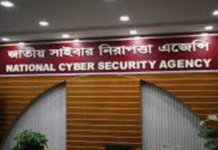Traders have continued to sell essential foods and popular Ramadan items at higher prices, even two weeks into the holy month, taking advantage of the slack monitoring of kitchen markets in the capital.
Prices of a few items saw a further hike over the last week, while some items, whose prices were increased previously, are still selling at higher-than-normal prices, to the dismay of people with limited income.
During a random survey by The Daily Star at popular kitchen markets, the prices of imported garlic, sugar and aromatic rice much consumed during festivals were seen varying widely from one market to another.
Meanwhile, the prices of some vegetables have come down, to the relief of consumers.
Earlier, Dhaka south and north city corporations, commerce ministry, consumer rights department and others designated to ensure fair prices promised to contain the price hike of essentials during Ramadan.
But scanty surveillance and monitoring have helped unscrupulous traders exploit consumers as seen in Mirpur-11 kitchen market, Kalmilata kitchen market in Tejkunipara, Jurain kitchen market and West Kazipara mosque kitchen market.
At the Mirpur market, sugar sells at Tk 75 a kg, Tk 7 higher than what was in the beginning of Ramadan, Chinese garlic at Tk 300, which was Tk 240 two weeks ago.
The price of locally produced garlic has remained at Tk 120 and average quality rice at Tk 56-58.
The variety of good quality pilau rice has become costlier by Tk 8 to Tk 90 and low quality by Tk 5 to Tk 75, compared to the prices in the last week.
Some vegetables like cucumber, green chilli and eggplant saw their prices decline by Tk 10 to 20 per kg at this market. An essential Ramadan item, chickpeas are sold at Tk 85-90 as before.
At Kalmilata kitchen market in Tejkunipara, beef sells at Tk 480-500, up by Tk 5-25 from the government-fixed rate.
The prices of some vegetables like cucumber, tomato, eggplant and green chilli have fell by Tk15-20 per kilogramme.
Though Dhaka South City Corporation fixed the price of red meat at Tk 475 for Ramadan, shopkeepers at Dhupkhola kitchen market sell beef at Tk 500 per kilogramme.
The authority at a meeting with meat traders fixed the beef price at Tk475 (local variety) and Tk440 (imported variety) and the mutton price at Tk775.
“We sell beef at a higher price since we fail to maintain good quality if we sell at the fixed rate,” said trader Mohammad Azim.
He, however, added that fixing the prices of meat was a good measure. Otherwise, the beef price would soar to Tk 575 to Tk 600 a kg.
The price of Chinese garlic was found abnormally high at the Dhupkhola market. It is sold at Tk 300 a kg compared to Tk 160-180 a week back. The price of local garlic too rose by Tk10 from the last week’s price.
Compared to other kitchen markets, the prices of commodities were much higher at Mohammadpur Town Hall market. The prices of different varieties of fish increased by Tk 100 to 300 a kg on average and the price of imported garlic rose to Tk 300.
Eggplant, cucumber and green chillies were also sold at prices up by Tk 10 to 20 per kg.
Some dishonest traders take advantage of inadequate monitoring and hike prices illogically, said Shafiul Islam Laskar, director general of the Directorate of National Consumer Rights Protection.
“We have just two teams conducting market drives every day [in Dhaka]. They can at best fine an unscrupulous trader if not accompanied by an executive magistrate,” he said, adding that there were other organisations also responsible for market monitoring.
An additional secretary of the commerce ministry, who leads the import and internal trade wing, said the wing had two teams comprising representatives of home, agriculture, food and industries ministries, city corporations, FBCCI and tariff commission to oversee markets in the capital.
The teams suggest what should be done to maintain fair prices. They along with mobile courts sometimes randomly visit markets and penalise manipulators.
“It is true that such random visits cannot stop price manipulation. It would require at least 50 teams,” said the commerce ministry’s additional secretary.
Dhaka North City Corporation’s public relations officer Monzur-E-Mowla said the city corporation also conducted random drives with help from two executive magistrates and five zonal executive officers, but it was not enough to keep the crooked traders at bay.
Source: The Daily Star









